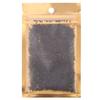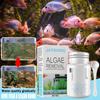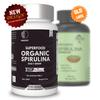Quality is the first with best service. customers all are our friends.
Application of potassium permanganate in seedlings
Potassium permanganate solution has strong bactericidal and disinfecting effects. It is effective for controlling various seedling diseases, non-toxic, no residue, and can be used as micro-fertilizer to prevent seedling stage quenching disease, blight, and downy mildew. Diseases, soft rot, blight, root rot, viral diseases and other diseases are very effective.
Seed soaking: use 0.3% to o.5% potassium permanganate solution to soak seeds of cedar, pine, alfalfa, alfalfa, camellia, nan, hibiscus, tea, peach, oyster shell, etc.; or use 0.1% to 0.2% high Potassium manganate solution is soaked in soybeans, peanuts, corn, tomatoes, watermelon, cucumber, eggplant, melon and other vegetables and melon seeds. Generally, it is soaked for 2 to 3 hours, washed with water and dried, and then sown, which can eliminate the pathogens brought by the seeds, promote rapid germination and grow neatly.
Spray or root:
1. The seedlings are sick. Occurs from April to June, for pine, cedar, alfalfa, nan, mulberry, alfalfa, alfalfa, alfalfa, birch, ginkgo and fruit tree seedlings, 0.3% to 0.5% potassium permanganate solution in the early stage of the disease; The smashing disease of melon vegetables at the seedling stage is sprayed with 800 to 1000 times of potassium permanganate solution every 7 to 10 days after emergence, and it is necessary to control 3 times, and the incidence rate can be controlled at about 2%.
2. Seedling wilt disease. Prevention and treatment of melons, beans, solanaceous vegetables, and flower wilt, the effect is better than that of tobuzin and dikesone. Generally, in the early stage of the field, the roots of 800-1000 times of potassium permanganate are used for root irrigation. Each plant is used with 150 ml of water, once every 5 to 7 days, and evenly 3 times, can achieve significant control effects.
3. Prevention and treatment of viral diseases. In the early stage of the onion of peppercorns, such as peppers, 600 to 800 times of potassium permanganate, and melons such as zucchini are sprayed with 1000 to 1200 times of liquid, sprayed once every 5 to 7 days, even spray 3 Up to 4 times, the spread of viral diseases can be controlled. Note that before the prevention and treatment of viral diseases, the sucking mouthparts pests on the plants, such as aphids, should be prevented to prevent the aphids from being infected.
4. Control downy mildew. The effect of potassium permanganate on the control of vegetable and flower downy mildew is significantly higher than that of chlorothalonil and daisen zinc. For example, cucumber can be sprayed with potassium permanganate 600 to 800 times before emergence to 2 leaves and 1 heart, and every 5 to 7 days, even spray 4 times to prevent downy mildew. When the central diseased plant appeared, it was sprayed three times with 600 times of potassium permanganate, which had a good control effect.
5. Control the soft rot of cruciferous vegetables. The seedling stage and rosette period of kale and Chinese cabbage. Spraying with potassium permanganate 600 to 800 times for 3 to 4 times can effectively prevent soft rot and treat downy mildew.
6. Prevention of root rot. In the early stage of root rot, sap, pine, alfalfa, paulownia oil tea, black mulberry, rose, rose, sweet-scented osmanthus and fruit trees, flower seedlings, root sprayed with O.3% to 0.5% potassium permanganate solution sprayed and rooted, the control effect can reach 91% to 95%; root rot occurs in the seedling stage of melon, eggplant, beans, vegetables and cotton, sprayed and rooted with 500 to 600 times, sprayed every 7 to 10 days, even spray 3 Second, can control the hazard.
list include: 24pcs Tablets/box
enabled: yes






































